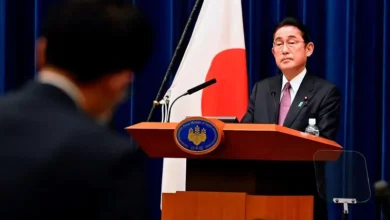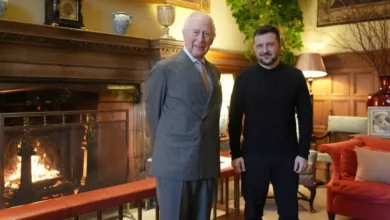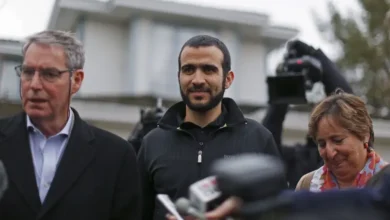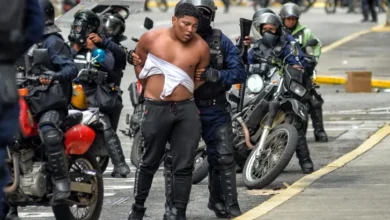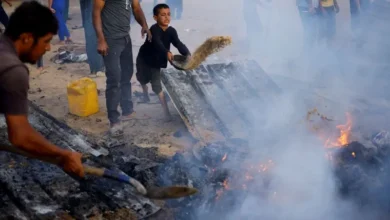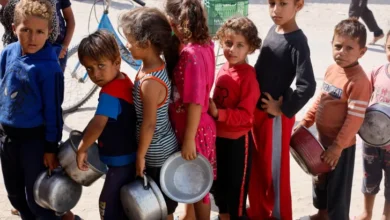Gaza toddlers got the polio vaccine, then an Israeli bomb took their legs
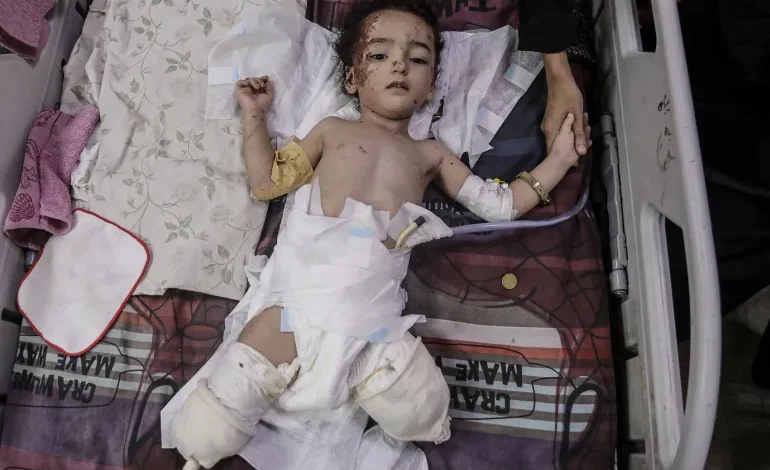
Three-year-old Hanan al-Daqqi spends her days with her younger sister Misk, occasionally asking questions.
“Where’s Mama?”
The two toddlers have been in the hospital for four months since they were brought there, battered and bleeding from an Israeli bombing, and had their legs amputated.
Their father’s sister, Shefa al-Daqqi, 28, has been by their side since then, but she still does not know how to answer the girls’ questions.
‘Trapped in a nightmare’
On the morning of September 2, Shaima al-Daqqi got up early to take her two daughters – Hanan and 22-month-old Misk – to get the polio vaccine, which was being offered to people in the midst of Israel’s war on Gaza.
The following day, after the family had lunch, Israel bombed their home in Deir el-Balah.
It killed 25-year-old Shaima and injured the rest of the family, including her husband Mohammed al-Daqqi, and tore through the two little girls’ legs.
Hanan was severely injured, losing both her legs – one above the knee and one below – and sustaining wounds across her body, including her face and intestines. She had to undergo surgery to remove part of her bowels.
Meanwhile, little Misk had to have her left foot amputated.
Their father, Mohammed, 31, was in intensive care for two weeks with a brain haemorrhage and injuries to his chest.
“We’ve been trapped in a nightmare for four months now,” says Shefa as she tries to soothe Hanan, who has been fragile and volatile since the attack.
Both girls are in a state of fearful panic, clinging to their aunt constantly.
Shefa tries to comfort them, but often finds herself weeping over the little girls, partly in sadness and partly in fear over what the future will hold for them.
“All I can tell her now is that her mother is in heaven. What kind of future do they have to look forward to?
“How will [they] feel as they grow and see how different they are from other kids their age? How will Hanan wear the clothes she likes so much?
“What do I say when she asks for pretty dresses or shoes?’
“It’s harder for Hanan because she understands more than her sister, and her injuries were far more severe.”
The hospital and its staff are working in such an overcrowded and underequipped environment that there’s no possibility of providing psychological support for the girls.
Staring at other children’s legs
Shefa, a mother of three herself, takes shifts caring for the two girls, switching with their grandmother, the late Shaima’s mother, their paternal uncle Ahmed, 29, and their father, who stays with them at night.
Whenever they can, the adults bring little treats for the girls, whatever they manage to find in the markets. The girls often ask for toys, but there are none to be found so they have to make do with whatever little accessories and treats their family can find.
Ahmed is the most fun for the girls, Shefa says, playing with them and taking them out of their room to check out the rest of the hospital.
“None of us can or will ever be able to replace a mother,” says Shefa, her eyes red and tears streaming.

